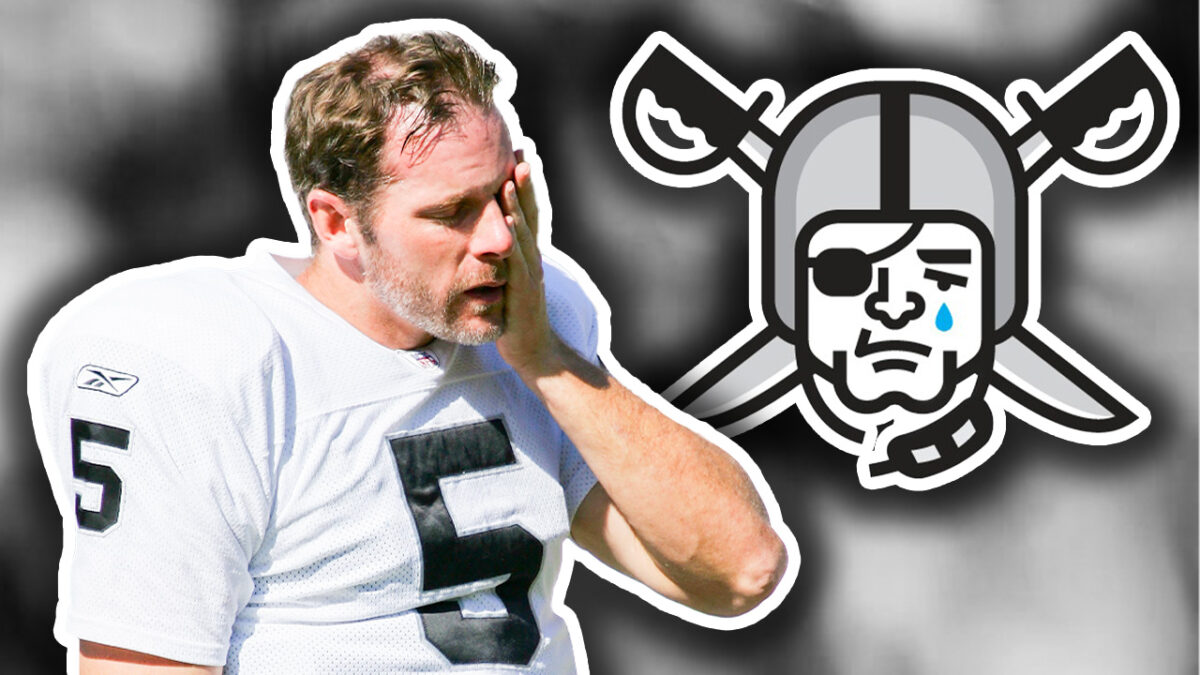
Reggie White, Peyton Manning, Tom Brady and Drew Brees. These are just some of the greatest free agent signings in NFL history. These guys made immediate impacts and directly led their teams to a Super Bowl championship.
Of course, the vast majority of big-name free agent signings never pan out. In some cases, a team cuts bait and manages to correct the mistake rather quickly. But as you’ll learn with these 10 free agent mistakes, sometimes these massive signings can set your team back for years.
Nnamdi Asomugha: Philadelphia Eagles
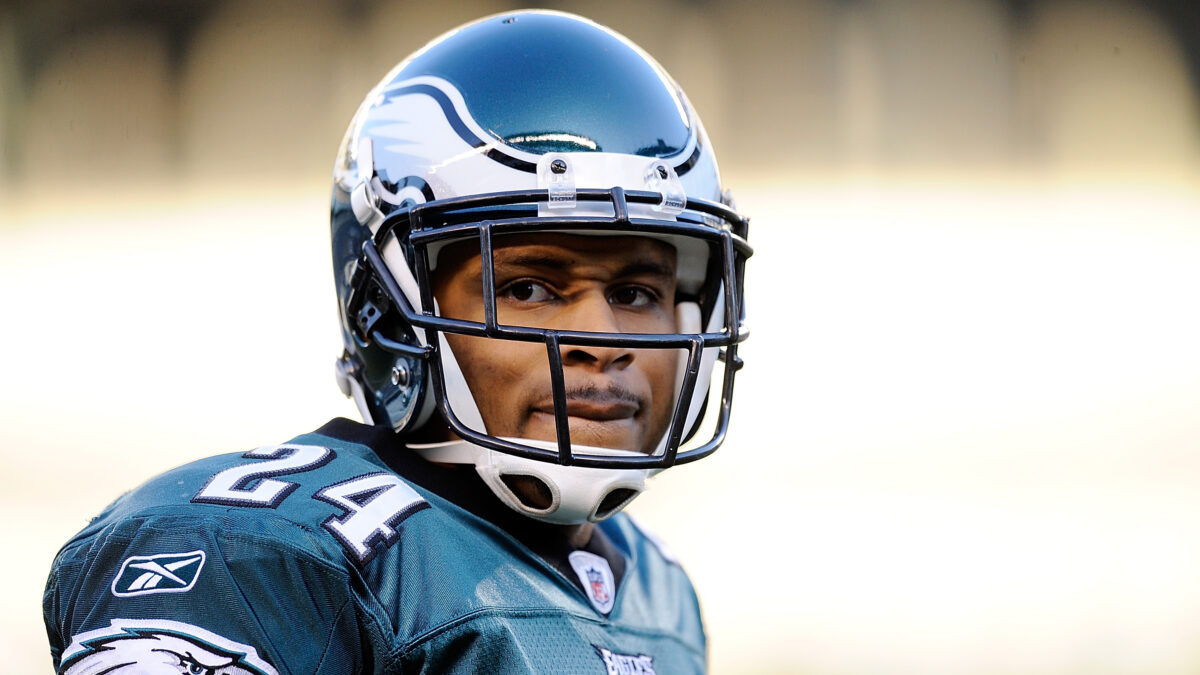
The Eagles were coming off an NFC East division title and a third straight playoff berth entering the 2011 offseason. Having won 10 games in 2010, surely a few more impactful additions would push ‘em to the next level – right?
The Eagles went crazy in free agency, signing defensive linemen Jason Babin and Cullen Jenkins, former Texas star QB Vince Young and All-Pro corner Nnamdi Asomugha.
The latter signed for a mammoth $60 million over five years, giving Philly another Pro Bowl talent on an already stacked defense.
Young made the mistake of proclaiming the Eagles a “Dream Team” before the season started. Asomugha was supposed to provide Philly with a five-star shutdown corner who constantly took away half the field in Oakland.
Click on ‘Follow Us’ and get notified of the most viral NFL stories via Google! Follow Us
But nope. Asomugha was an awful fit in the Eagles’ defensive schemes, and he instead turned into a liability with them. The Eagles as a whole played well below expectations, finishing a disappointing 8-and-8 to miss out on the playoffs.
So much for building a super team. The Eagles made the playoffs just once from 2011 to 2016, before Carson Wentz and Nick Foles magically propelled the franchise to a Super Bowl 52 championship in 2017.
Kerry Collins: Oakland Raiders
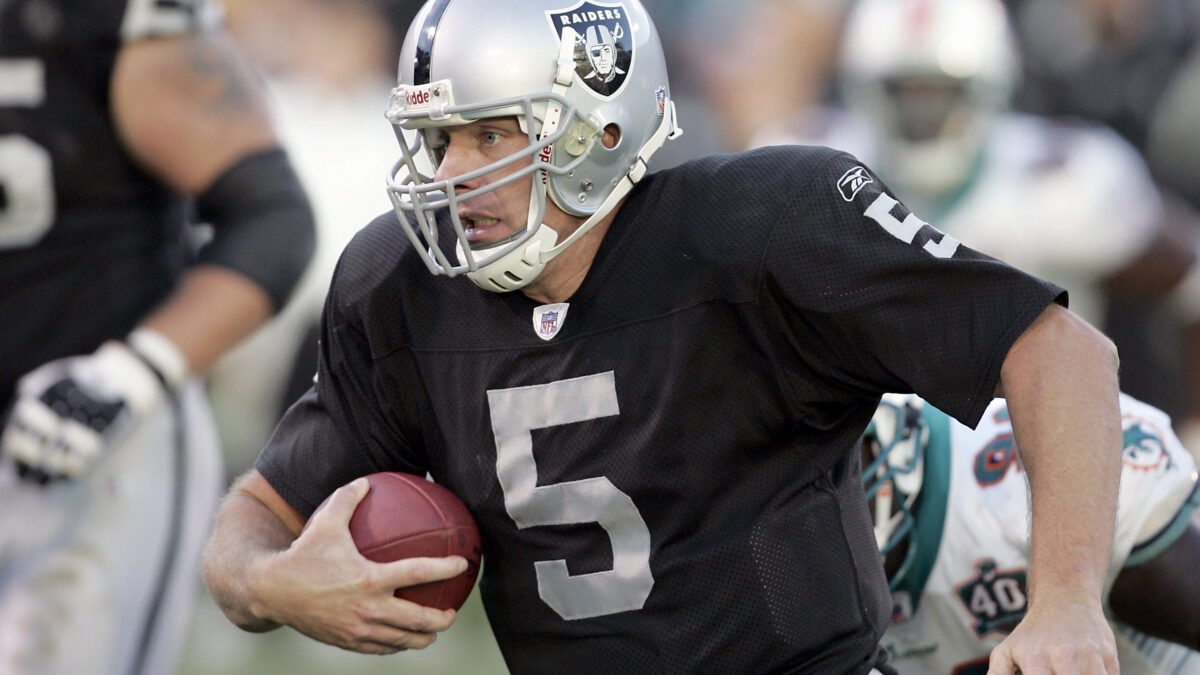
From a monetary standpoint, this certainly wasn’t the worst free agent signing ever. But man, you can only wonder how much different history could have been for the Raiders if they never put all of their eggs into Collins’ basket.
After he was released by the New York Giants, Collins signed a three-year deal with the Raiders for $16 million. Now, it should be noted that the signing came after the draft. But what if the Raiders didn’t rely on free agency, and used their number two pick in 2004 on Philip Rivers or Ben Roethlisberger, rather than big-time bust Robert Gallery?
Or, what if the Raiders didn’t take Fabian Washington one pick before the Green Bay Packers took Aaron Rodgers at the following draft?
Anyway, Collins lasted just two seasons with the Raiders and compiled a terrible 7-and-21 record. He completed just 54.8 percent of his pass attempts for 41 touchdowns and 32 picks.
When you consider all the “what-ifs”, the Collins signing really hurt the Raiders. And if they draft a QB in 2004 or 2005, they most likely avoid the disastrous JaMarcus Russell selection in 2007.
The Raiders didn’t find a new franchise QB until Derek Carr came along in 2014. So yeah, the Collins signing pretty much set the Raiders back for over a decade.
Albert Haynesworth: Washington Commanders
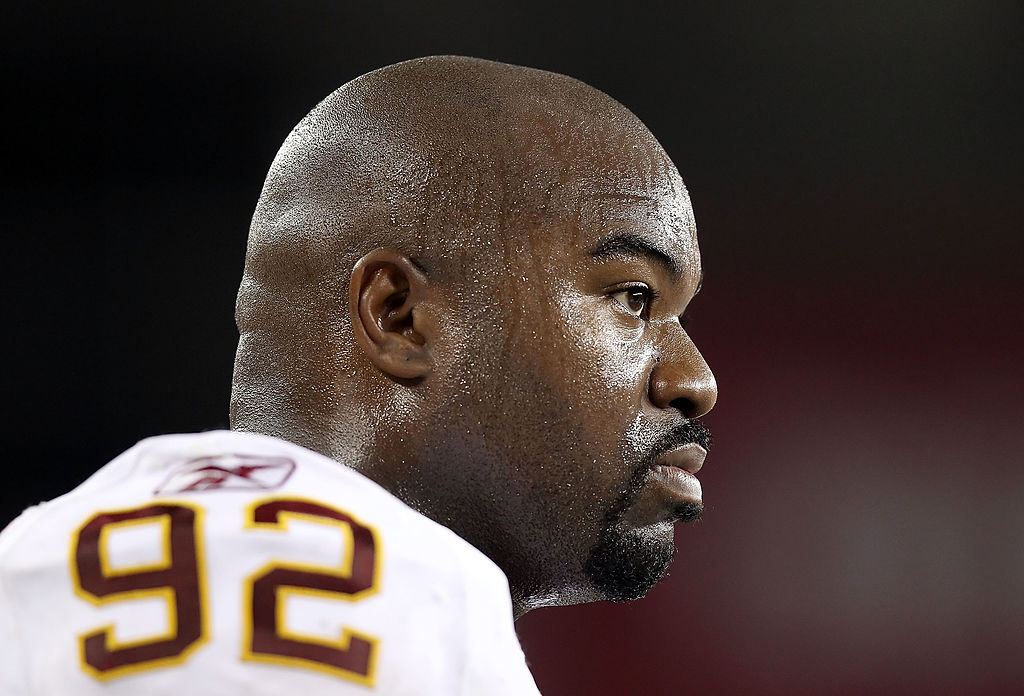
During his final years with the Tennessee Titans, Albert Haynesworth was one of the NFL’s most dominant game-changing forces.
The 6-foot-6, 350-pound defensive tackle earned both Pro Bowl and first-team all-pro nods in 2007 and ‘08, leading the Titans to the playoffs on both occasions. Haynesworth picked the right time to break out – in his contract year! – which set him up for the payday of a lifetime.
In 2009 free agency, Haynesworth signed a whopping seven-year, $100 million deal with Washington. The Tampa Bay Buccaneers – who play in a state with no tax, by the way – actually offered Haynesworth even more money, but he was thrilled about the idea of joining Washington.
Haynesworth’s $100 million deal turned out to be a giant flop from the get-go. He wasn’t a fit in their defense and even voiced concerns about it after a humiliating home loss. Haynesworth’s effort got noticeably worse in 2010, and his attitude problems became too much for the coaching staff.
He was suspended for four games in 2010 for conduct that was considered “detrimental to the” football team. Washington traded him to the New England Patriots in the 2011 offseason, but even the legendary Bill Belichick couldn’t help Haynesworth turn things around. He was subsequently released following yet another heated argument with a coach.
Washington was one year removed from a playoff berth when they signed Haynesworth. His signing destroyed team morale, and the franchise has remained a mess ever since.
Le’Veon Bell: New York Jets
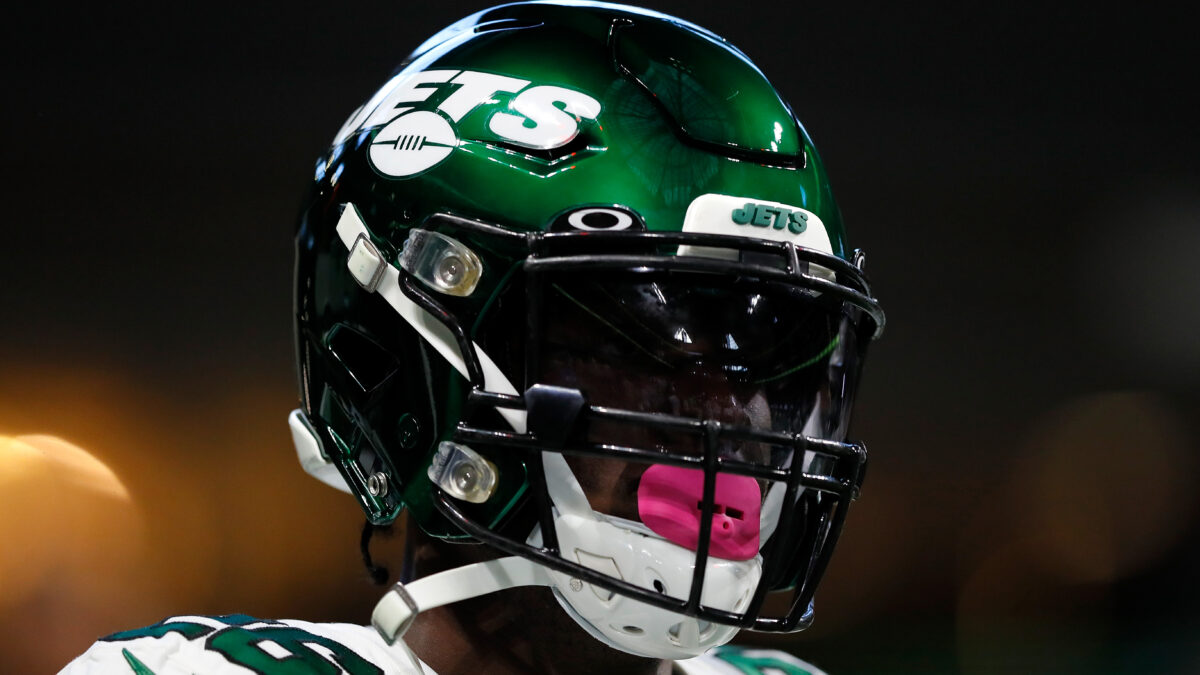
Le’Veon Bell was arguably the NFL’s best all-around running back from 2014 to 2017. In that span, he earned three Pro Bowl selections, along with two first team and two second-team all-pro nods.
But in a move that still makes no sense to this day, Bell rejected a five-year, $70 million contract extension from the Steelers in 2018. Even more mind-numbing: He decided to sit out for the entire 2018 season with the hopes of staying healthy and maximizing his earnings in 2019 free agency.
Bell misread his own market big-time, and he had to settle on a four-year, $52.5 million deal from the New York Jets. Reports surfaced that new head coach Adam Gase clashed with GM Mike Maccagnan, and was infuriated that he’d spend so much money on a running back.
Well, Maccagnan got fired a couple of weeks after the 2019 draft. Gase was out in Gotham after compiling a woeful 9-and-23 record through two seasons on the job.
Bell didn’t even make it through two seasons in New York. He played just two games in 2020 and was released before getting scooped up by the Kansas City Chiefs. He averaged just 3.3 yards per carry and 50.8 yards per game in 17 games as a Jet.
Somehow, signing Bell made an already-sad Jets franchise even worse.
Neil O’Donnell: New York Jets
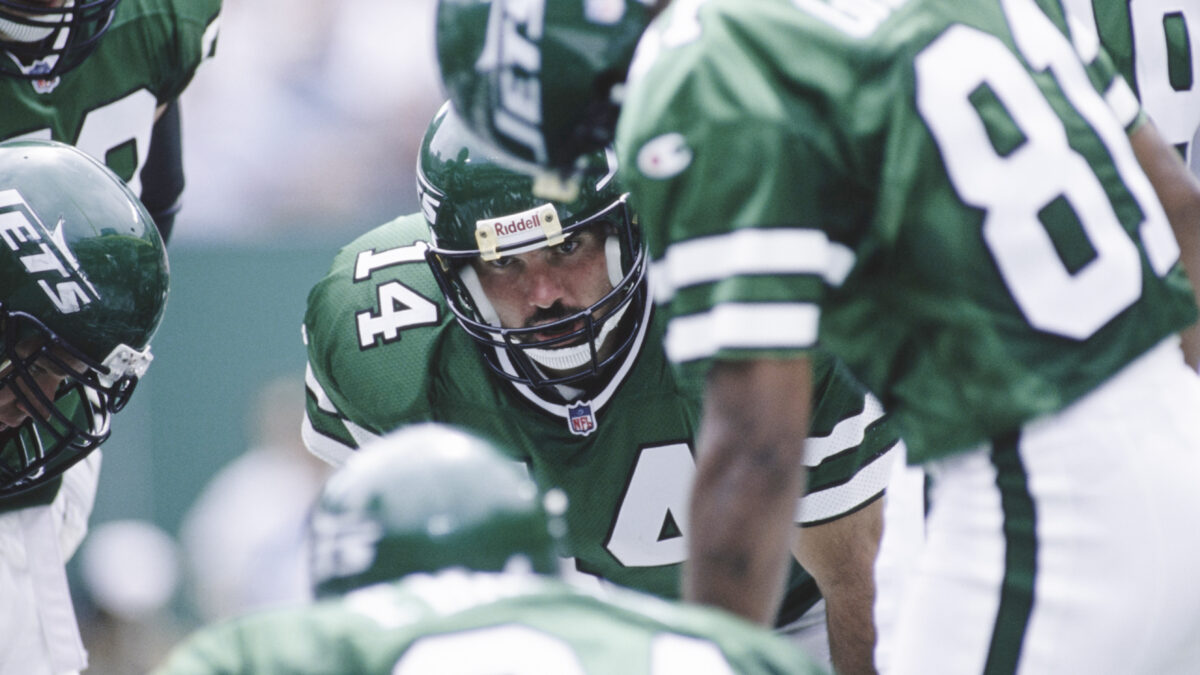
After leading the Pittsburgh Steelers to a Super Bowl 31 appearance, O’Donnell cashed in on the free agent market. In 1996, O’Donnell signed a five-year contract with the Jets worth $25 million – which was A LOT for a free agent in those days.
But the Jets’ version of O’Donnell was nothing close to the Steelers’ version. O’Donnell lost 12 of 20 starts as a Jet over two seasons and completed only 56.9 percent of his pass attempts for 21 touchdowns and 14 picks.
New York dumped O’Donnell after two years and returned to the postseason in 1998 with Vinny Testaverde. They went all the way to the AFC Championship Game, losing to John Elway’s Denver Broncos.
So the Jets got one great year out of Testaverde. But imagine if they never signed O’Donnell in 1996? Maybe they tank for a couple of years and get someone like Peyton Manning in 1998? Or Donovan McNabb in 1999?
Signing O’Donnell kind of put the Jets on the path towards quarterback purgatory for nearly a quarter century.
Larry Brown: Oakland Raiders
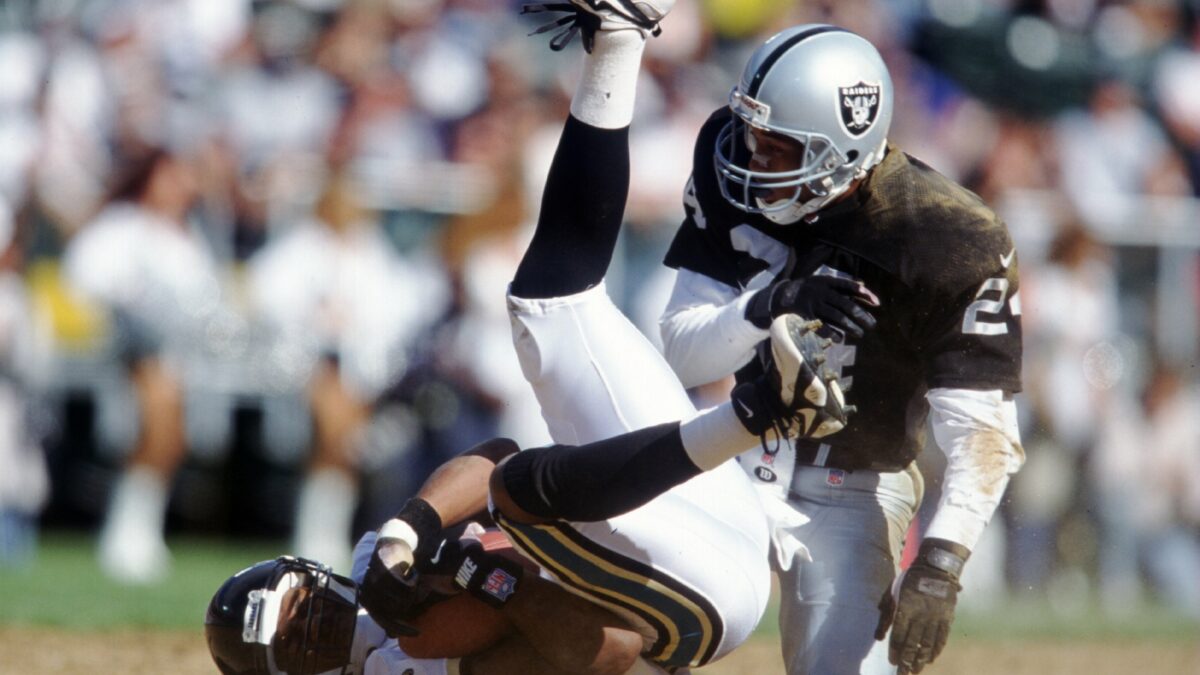
The likes of Larry Brown and Desmond Howard are excellent reminders that you can earn a life-changing contract if you save your best for when it matters most.
Both players got paid big-time money by the Oakland Raiders after winning Super Bowl MVP honors. After helping the Dallas Cowboys to a Super Bowl 30 championship, Brown signed a five-year deal with the Raiders for $12.5 million.
Injuries limited Brown to 12 games with the Raiders over the 1996 and ‘97 seasons, and he was far from effective when on the field. The Raiders subsequently cut ties with Brown, who became the first of many major free agent mistakes by the Raiders over the next decade-plus.
Signing Brown also hurt because the Raiders could have taken a stud defensive back in the 1996 draft: Namely Hall of Fame safety Brian Dawkins or Pro Bowlers Tory James or Walt Harris.
OR, in 1997, they could have taken Shawn Springs or Ronde Barber. Imagine pairing one of those guys with future Hall of Famer Charles Woodson, whom the Raiders took fourth overall in 1998? Maybe one of those defensive backs is the final piece for the Raiders to get past Tampa in Super Bowl 37?
Josh Norman: Washington Commanders
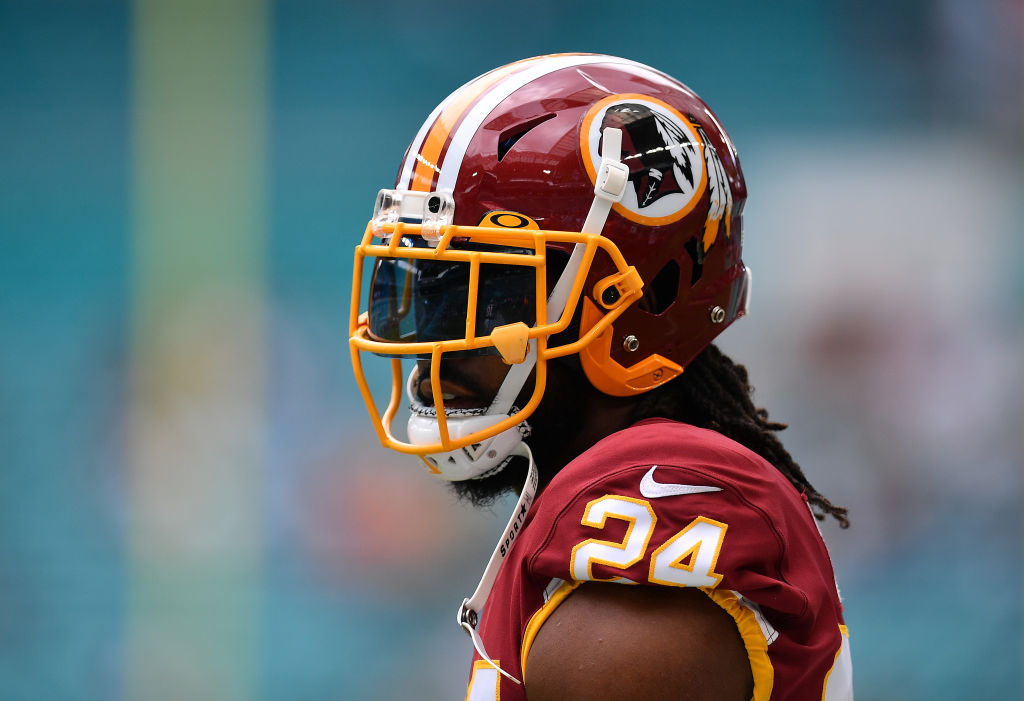
Washington won the NFC East in 2015 with a 9-and-7 record, but they were eliminated by the Green Bay Packers in the Wild Card Round.
Washington fielded the 10th-best scoring offense that year, but the defense needed a revamp after allowing 23.7 points per game. The solution? Adding All-Pro corner Josh Norman, who shockingly entered free agency after the Carolina Panthers rescinded his franchise tag.
Norman was by far the NFL’s best corner in 2015, helping Carolina to 15 wins and a Super Bowl appearance. So it was understandable why Washington handed him a monster five-year pact worth $75 million.
But like Haynesworth some years earlier, Norman struggled to make it work in Washington. He wasn’t at all a fit in Joe Berry’s defense, and Norman also became a giant liability in coverage.
Washington’s defense actually got worse with Norman, who was benched on multiple occasions. After four seasons in DC, he was released in the 2019 offseason.
Fittingly, Washington’s defense was once again among the NFL’s elite in 2020 – which propelled the team to a surprise NFC East division title.
Scott Mitchell: Detroit Lions
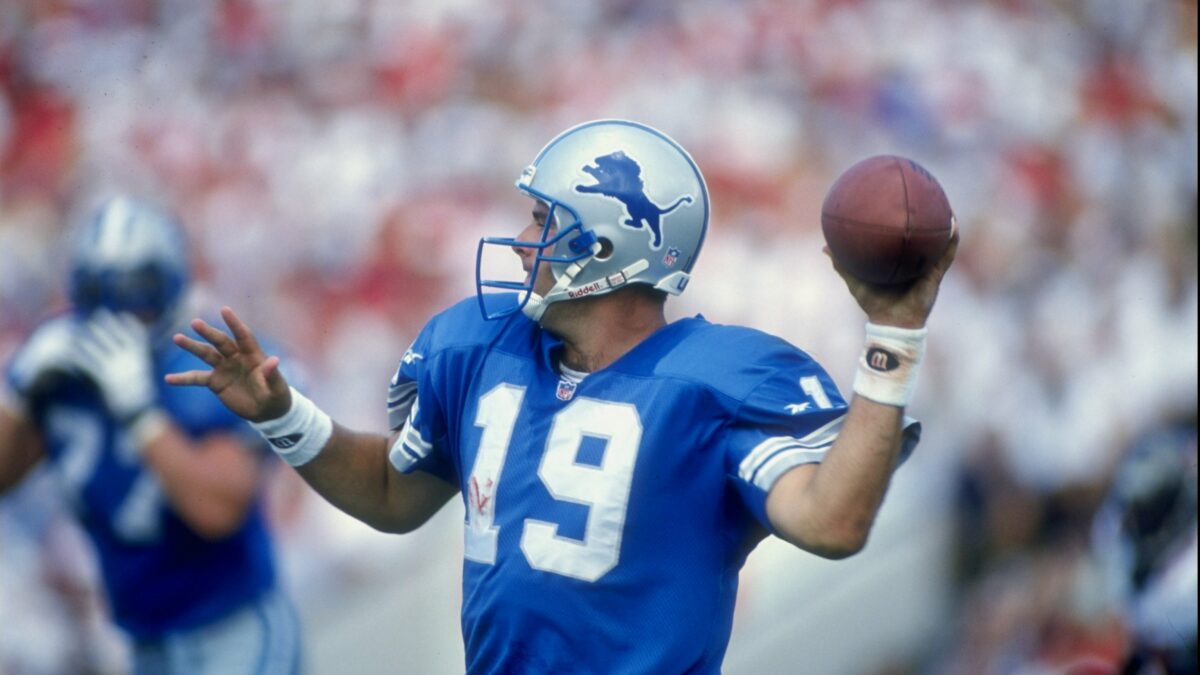
Mitchell was Dan Marino’s backup in Miami from 1990 to ‘93. He actually showed flashes in his final season with the ‘Phins, tossing 12 touchdowns against eight picks.
It was enough for the Lions to pay Mitchell like a superstar. The Utah product signed a four-year deal worth $21 million – which was a lot of money back then. Detroit was simply paying Mitchell to elevate them to Super Bowl contention.
That never happened, however. Though the Lions made the playoffs three times with Mitchell, he certainly wasn’t the reason why… Barry Sanders will take the credit for that.
The truth is, Mitchell’s inconsistency greatly limited the Lions’ offense. He went 27-and-30 as their starter over five years and had 79 touchdowns, 57 picks, and zero playoff victories.
It makes you wonder what could have been if Detroit didn’t throw money at Mitchell. Maybe they would eventually draft a legit QB like Steve McNair or Kerry Collins in 1996? Or maybe they sign a better QB in the future?
The Lions were hamstrung by Mitchell’s bad contract and had to live with it. It wasn’t until the 2009 draft that they finally found their next franchise QB in Matthew Stafford.
Deion Sanders: Washington Commanders
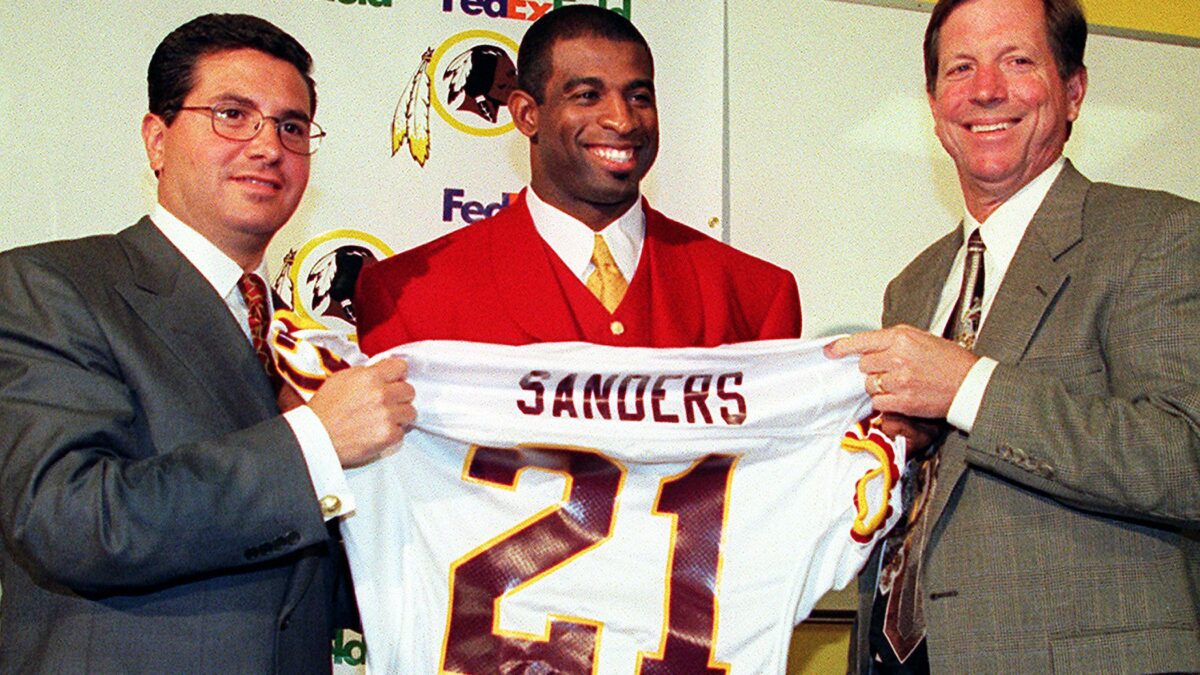
Expectations were sky-high for Washington entering the 2000 season. The 1999 squad went 10-and-6 and dropped a heartbreaker to Tampa Bay in the Divisional Round, narrowly missing out on the NFC Championship.
New owner Dan Snyder spent big-time bucks in free agency in order to push Washington to the next stratosphere. Future Hall of Famers Deion Sanders and Bruce Smith and Pro Bowl safety Mark Carrier were all signed to improve the roster.
Sanders was the biggest catch of the three, landing a monster seven-year contract worth $56 million. That was a lot of money for a cornerback who was entering his age-33 season, to say the least. But nonetheless, Washington came into the 2000 season with the second-best Super Bowl odds at +350.
Sanders had a disappointing season in DC and ultimately retired after just one year – though he’d return to play for the Baltimore Ravens in 2004 and 05.
The hefty Sanders contract was just one of many that Snyder handed out which led to mega buyer’s remorse. Washington missed the playoffs every year from 2000 to ‘04 before finally qualifying again in ‘05.
Elvis Grbac: Baltimore Ravens
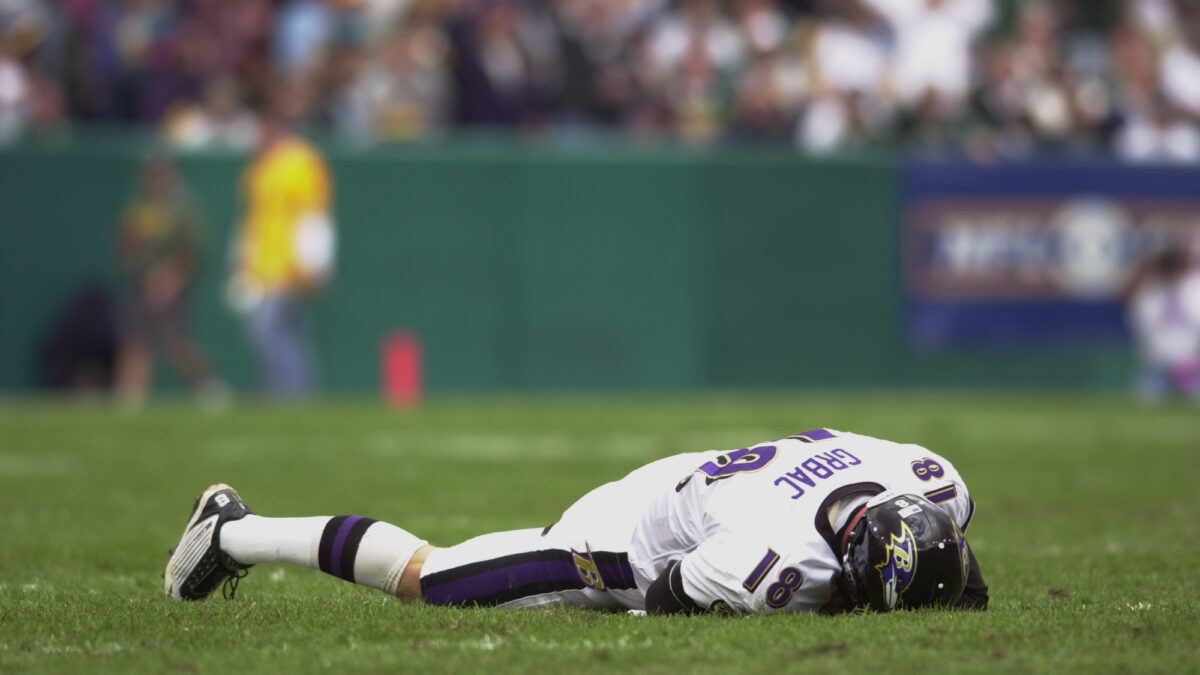
The Ravens won Super Bowl 35 on the backs of a historically good defense that allowed just 10.3 points per game. Hall of Fame tight end Shannon Sharpe and the elite running back duo of Jamal Lewis and Priest Holmes helped take the pressure off of Trent Dilfer, the starting QB of the Ravens’ championship team.
But after winning the Lombardi Trophy, Baltimore sought a QB upgrade anyway. They signed former Kansas City Chiefs star Elvis Grbac to a five-year deal worth $30 million. Baltimore went 10-and-6 that year, but that was once again all thanks to the D.
Grbac completed 56.7 percent of his pass attempts for 15 touchdowns and 18 picks. The Ravens released him after one year, and Grbac subsequently retired.
The Ravens would endure mediocre to terrible quarterback play for the next six years. Much of Ray Lewis, Terrell Suggs and Ed Reed’s prime years were wasted during this time, but Baltimore would FINALLY find its next franchise QB in Joe Flacco at the 2008 draft.
Which other horrible NFL free agent signings ruined a franchise?





















